Reunion:
Poems about Parenting
Grown Children
Sondra Zeidenstein,
Editor
(Chicory Blue)
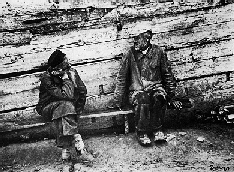
- She wants to hang herself from the rafters, she says
to me at the top of the stairs...
- How's work? I'll ask my son, trying to catch up.
He'll concentrate on his plate. I'll pick up the bill.
- You're a beautiful drunk, daughter.
But you're a drunk. I can't say you're breaking
my heart. I don't have a heart when it comes
to this booze thing.
Pearl Garrett Crayton tells us to be very careful, "Please, please, please, please, please/don't step on my daughter's toes!" Why? She'll
- cut you down to size,
scratch your eyes out,
pull out your hair,
go for your jugular vein,
flay you skinless,
trample you in the dust.
By comparison: "I've seen cancers cause less misery."
Penelope Scambly Schott tells of the telephone call, and "the spooked nickering of my grown daughter/across three thousand miles of dark,/that iron shoe in my heart," while Sheila Gardiner explains that her daughter's "What will I do with the rest of my life?" ("dissolving my heart") comes "from years of paralysis."
And just so we'll know that this stuff reaches across ages, Judith Arcana interviews Jocasta in hell, asks how come she gave up her son. She says Laius bullied her into doing it, but mostly she was "crying over my loose belly, still soaked in milk." Besides, "He was king." Besides, who was to know, who in god's name could ever know,
- When you look down at them in their baskets, wrapped in soft cloth, when they root for the nipple under your gown, pursing their tiny budlipped mouths toward the smell of you, their eyes still fogged, still changing.
"How could I have recognized him?" she wails, as every mother must wail when she looks into the eyes of her newborn and has no idea, no idea in god's great world that the babe in arms may someday rise up to smite the old man, strike him dead, then bury himself in the arms of the widow, the one who could not, not in a thousand thousand years, guess that this lovely young man, "my mysterious suitor, the supposed savior of my city" is, in truth the soon to be her blind --- blinded by his own hand --- son, that one-time "nuzzling, budlipped babe" of her own womb, now returned to her womb. In another direction, in another guise.
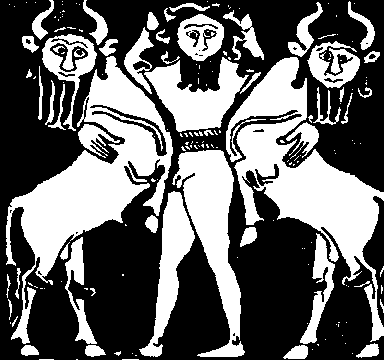
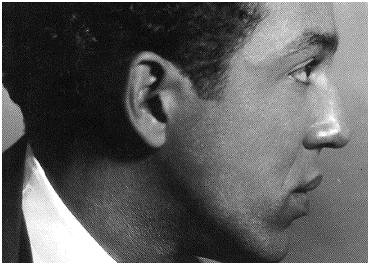
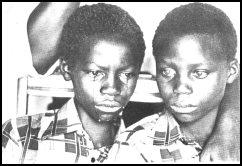 Hughes was the most strident in his poetry of protest --- protest against lynchings, the Ku Klux Klan, the casual cruelness of the Southern white, and --- later --- the works of the various anti-subversive committees of Congress, "The committee's fat,/Smug, almost secure/Co-religionists/Shiver with delight/In warm manure..."
Hughes was the most strident in his poetry of protest --- protest against lynchings, the Ku Klux Klan, the casual cruelness of the Southern white, and --- later --- the works of the various anti-subversive committees of Congress, "The committee's fat,/Smug, almost secure/Co-religionists/Shiver with delight/In warm manure..."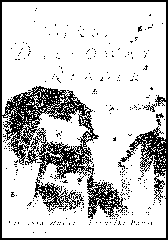
 Septimus' last thoughts are that he did not want to die. "Life was good. The sun hot." But Dr. Holmes --- sent by Bradshaw --- is at the door. "'I'll give it to you!' he cried, and flung himself out the window, vigorously, violently down on Mrs. Filmer's area railings." Our quiet and genteel and supposedly sane Clarissa at her carefully arranged party (the Prime Minister was there, he "had been good to come") hears the news of it, and at that point she says, "The party's splendour fell to the floor:"
Septimus' last thoughts are that he did not want to die. "Life was good. The sun hot." But Dr. Holmes --- sent by Bradshaw --- is at the door. "'I'll give it to you!' he cried, and flung himself out the window, vigorously, violently down on Mrs. Filmer's area railings." Our quiet and genteel and supposedly sane Clarissa at her carefully arranged party (the Prime Minister was there, he "had been good to come") hears the news of it, and at that point she says, "The party's splendour fell to the floor:" 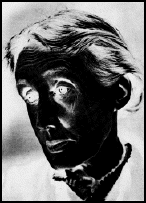 This volume comes along with several portmanteaus. There is a previous dry run by Woolf, called Mrs. Dalloway's Party; some commentary by E. M Forester and a few lesser modern critics, on feminism and such. It takes up the first 150 or so pages of the book. You are well off to ignore the most of it --- except for two. Sigrid Nunez's "On Rereading Ms. Dalloway" is worth it because her pet rabbit Percival nibbled on her first paperback copy of the book. She poop-poos the poo-pooers and is so obviously in love with Woolf that she helps us to fall for her too, "She was a genius in art and a heroine in life. She was the Goddess of Literature. I was at her feet."
This volume comes along with several portmanteaus. There is a previous dry run by Woolf, called Mrs. Dalloway's Party; some commentary by E. M Forester and a few lesser modern critics, on feminism and such. It takes up the first 150 or so pages of the book. You are well off to ignore the most of it --- except for two. Sigrid Nunez's "On Rereading Ms. Dalloway" is worth it because her pet rabbit Percival nibbled on her first paperback copy of the book. She poop-poos the poo-pooers and is so obviously in love with Woolf that she helps us to fall for her too, "She was a genius in art and a heroine in life. She was the Goddess of Literature. I was at her feet."